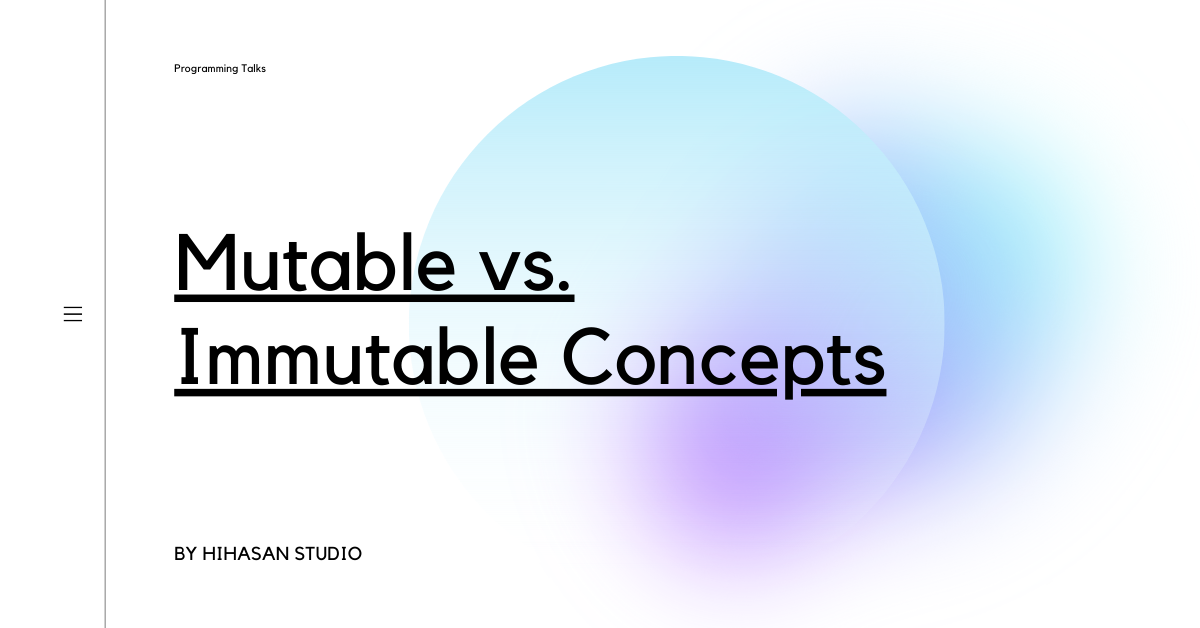When it comes to programming, the ideas of mutability and immutability refer to how data may or may not be altered once made. These concepts have significant consequences for the reliability, efficiency, and comprehension of code, making them crucial factors to consider when creating and scripting software.
Mutable Objects: Mutable objects can have their values modified after they are created. This allows for direct changes to their internal data. Mutable objects include lists, arrays, dictionaries, and objects in languages like Python, Java, and C++.
Advantages of Mutable Objects:
- Efficiency: Mutable objects can be more efficient when you need to frequently modify large amounts of data, as you can update the existing thing without creating new ones.
- In-Place Operations: Mutability allows for in-place operations, which can save memory and improve performance.
Disadvantages of Mutable Objects:
- Complexity: Mutable objects can make code harder to reason about, especially in concurrent or multi-threaded environments, where changes by one part of the program can affect other parts unexpectedly.
- Bugs: Unintended modifications to mutable objects can lead to subtle bugs that are difficult to track down.
- Predictability: Mutability can make it harder to predict the behavior of functions or methods, as their outcomes may depend on the current state of the object.
Immutable Objects: When an object is immutable, its state cannot be altered after it is created. The object maintains the same value throughout its existence. Some examples of immutable objects are strings, numbers (such as integers and floating-point), and tuples in programming languages like Python.
Advantages of Immutable Objects:
- Predictability: Immutable objects are more accessible to reason about because you can rely on their values not changing.
- Thread Safety: Immutable objects are inherently thread-safe, as multiple threads cannot modify them concurrently.
- Debugging: Bugs related to unintended changes in data are less likely with immutable objects.
- Caching: Immutable objects can be cached and reused, potentially improving performance.
- Functional Programming: Immutable objects are central to functional programming paradigms, making code more declarative and reducing side effects.
Disadvantages of Immutable Objects:
- Memory Usage: Creating new instances for every change can lead to higher memory usage, especially for large data structures.
- Performance Overhead: In some cases, creating new instances instead of modifying existing ones can lead to performance overhead.
When creating software, it’s crucial to decide whether mutability or immutability is suitable for a given situation. This choice typically relies on the particular application, performance factors, and overall program structure. Using both mutable and immutable data structures strategically can assist you in finding the right balance between code efficiency and dependability.











